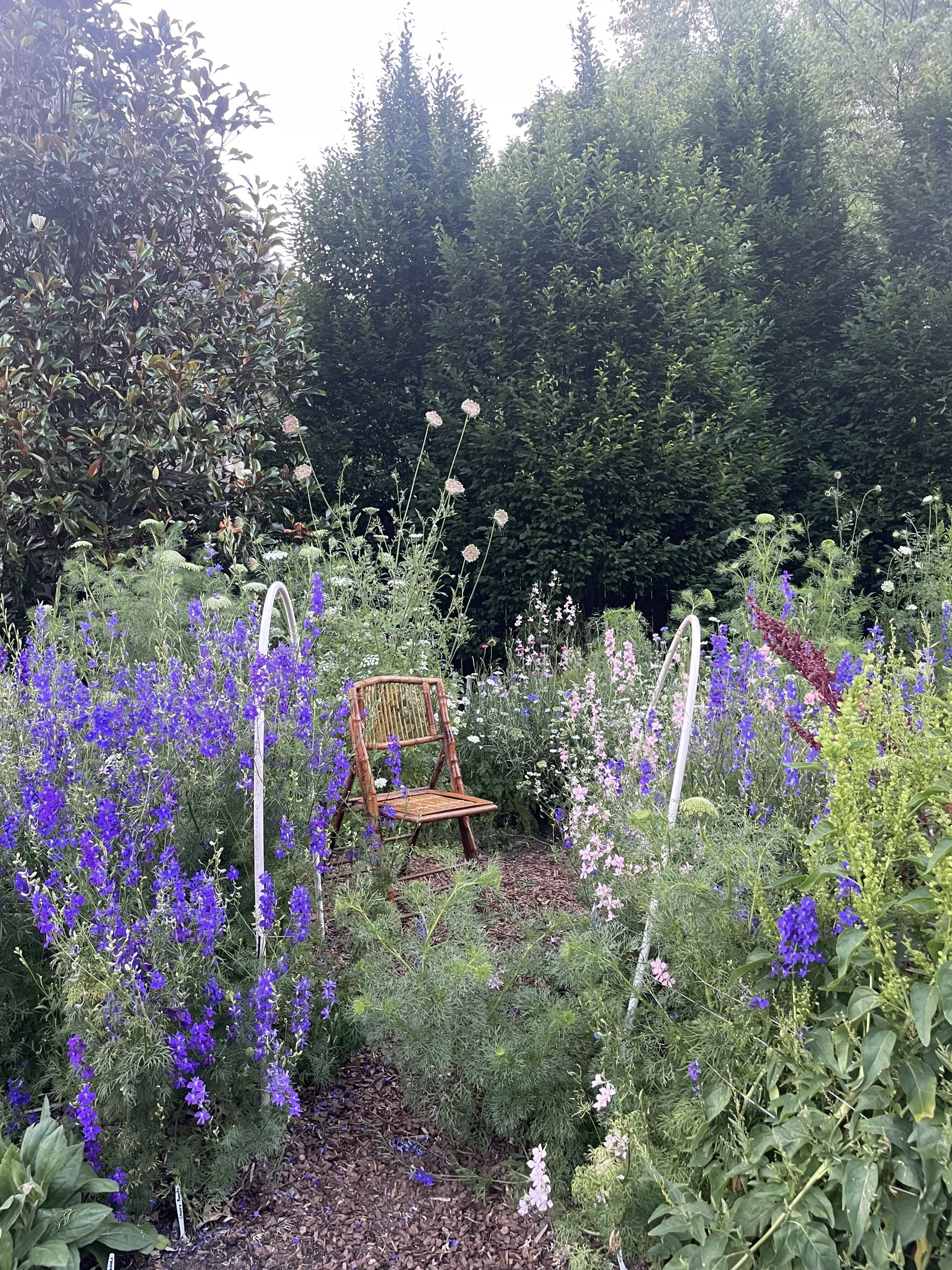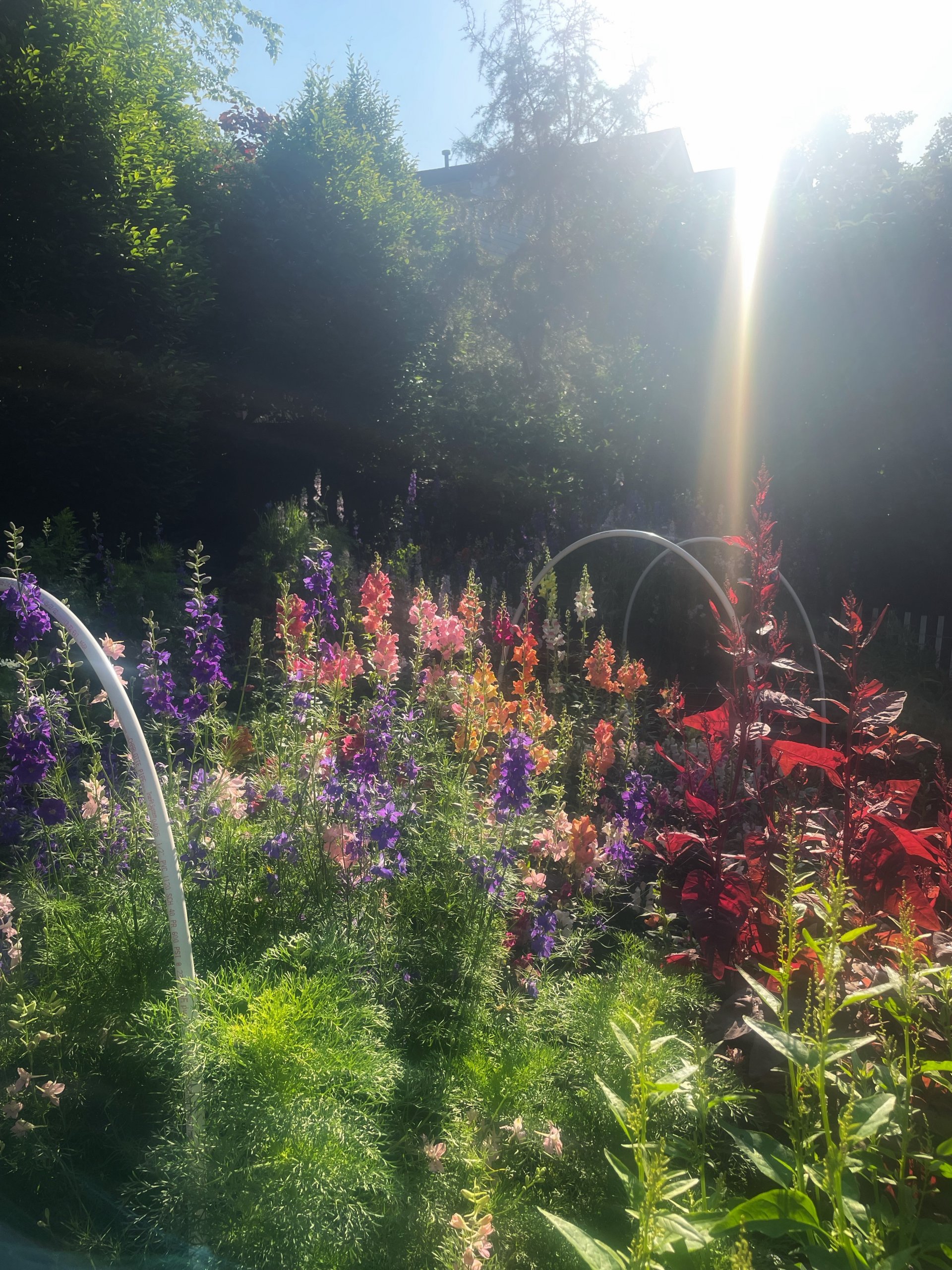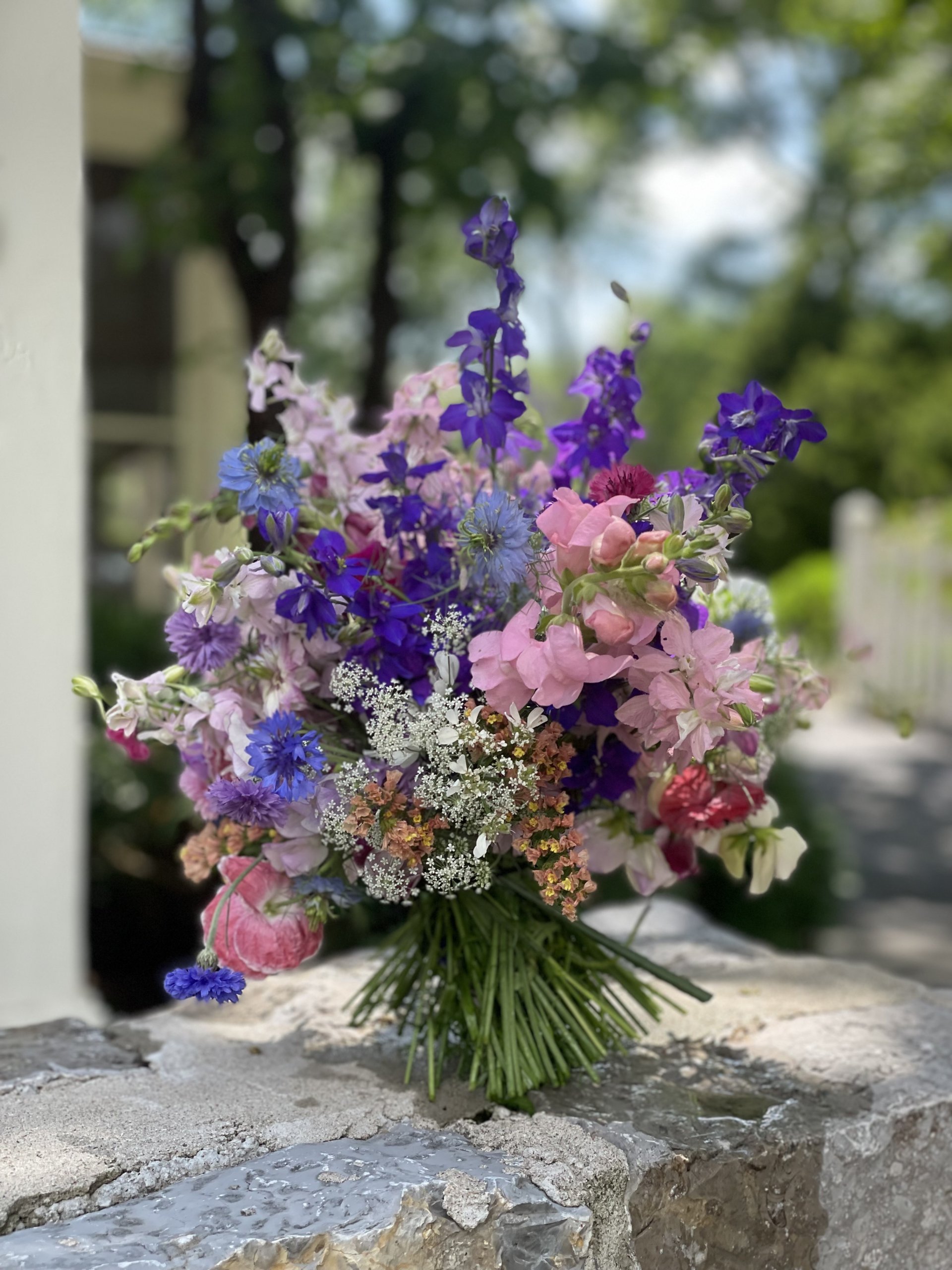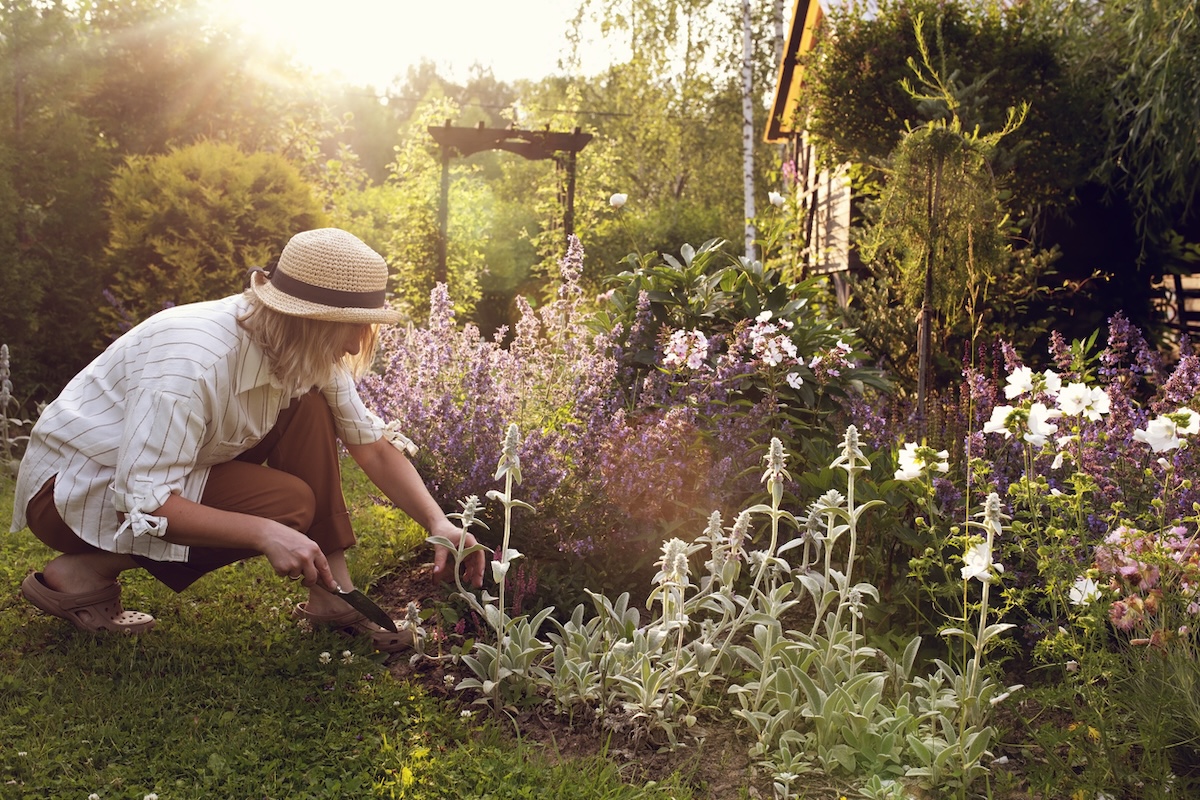If you dream of strolling through your garden on a spring morning, basket in hand and flowers at the ready, the time to plant is now. “Fall plantings are for spring harvests,” says Meredith Bishop, owner of Nashville-based Bloom & Bounty. Many old-fashioned spring favorites are biennials or hardy annuals that need winter’s chill to thrive. With a season of root development, they’ll deliver their most vibrant display come spring. Here’s Meredith’s guide to fall planting, and some tips on which flowers perform best when overwintered.
Where to Plant Your Cutting Garden
Light is the number one consideration when scouting out spots for your cutting garden. Without bright, south-facing light, your flowers will struggle to put on their best spring show. “Cutting gardens are best suited for areas with full sun (more than six hours per day) as most annuals, both tender and hardy, perform best when direct sun is available for most of the day,” says Meredith.

When it comes to carving out the right spot within your sunny location, Meredith tells us, “You can easily begin with a simple raised bed or two, and depending on how many varieties you’d like to sow and how closely planted, something as small as six by eight feet will yield a beautiful harvest.”
She adds that it’ll only take a season or two before you start craving even more space. “Once you begin harvesting the blooms, you will inevitably want more space than you have. Trust me!”
Flowers to Plant in Fall for a Spring Cutting Garden
Planting flowers in the fall for a spring cutting garden requires an understanding of which flowers need the winter cooling period, and when they should be planted.
Meredith explains, “Flower farmers watch the forecast and sow when fall days are still in the 80s, but nighttime temperatures begin to dip into the low 60s. With consistent watering, warm days, and cooling nights, fall-sown flowers can use the winter months to work on root development in preparation for early spring blooms.”
And there’s a diverse range of flowers that do well when planted in the fall, so you’ll have the variety you need for gorgeous spring bouquets. “Hardy annuals produce some of the tallest, largest, and most elegant blooms you can grow. Most will self-seed easily, reappearing spring after spring, resulting in a cutting garden that is largely hands-off for the gardener,” says Meredith.

Here’s what to plant now to set yourself up for a beautiful cutting garden come springtime …
Queen Anne’s Lace
Delicate Queen Anne’s Lace is actually a tough cookie that does best with time in the cold to trigger blooming. Sow the seeds in August or September, before temperatures drop for the fall. You’ll end up with pretty white blooms by June.
Snapdragons
Throughout the South, September is the best time to start sowing snapdragon seeds if you want to see these tall, colorful flowers in the spring. It’s best to give them a head start on the season because they don’t do well once temperatures climb far above 80 degrees Fahrenheit. You’ll begin to see these joyful flowers as early as late winter if you’re in the deep South.
Larkspur
Larkspurs add charming pink, blue, and purple color to your garden and height to any bouquet. Because they need a cold season to help seeds sprout, they should be planted in the fall. However, make sure to get them in the ground around two months before the first frost.

Poppies
A sprinkling of poppy seeds in the fall will give you a gorgeous flush of these papery-thin blossoms in the spring. These cool-weather blossoms don’t need a waiting period before the first frost. Plant them anywhere from October to November. You’ll see florals from March to May.
Delphinium
The tall, vibrant blooms of delphinium are a gorgeous addition to a spring cutting garden, but you have to think ahead for the most full burst of flowers. Plant delphinium seeds in late fall to see blossoms the following spring.
Bells of Ireland
Bells of Ireland are unexpectedly stunning flowers that add texture and a bright green hue to your cutting garden. These tall, lush flowers don’t do well once the summer heat sets in, so giving them the cooler months to overwinter will lead to the most buds in late spring.
Bachelor Buttons
Cute, delicate bachelor buttons will actually germinate when you plant them in the fall, but they’ll take their time growing before their blooming season in the spring.
Tulips
A cutting garden that’s planted in the fall for spring blooms also opens up the option of bulbs. Who doesn’t love a cheerful vase of brightly colored tulips to usher in the spring? Tulip bulbs should be planted in the fall to give them the entire winter to develop strong roots. By early spring, you’ll start to see these familiar spring beauties make their appearance.
Daffodils
Daffodils are another classic spring flower that does best when the bulbs are planted in the fall. Ideally, they’re planted several weeks before the first frost so they can establish roots ahead of winter. If you wait too long to plant them, whether in winter or early spring, you’ll end up with a smaller display.
Happy planting!
**********
Want more colorful inspiration? Our Weddings archive is FULL of floral artistry!



















